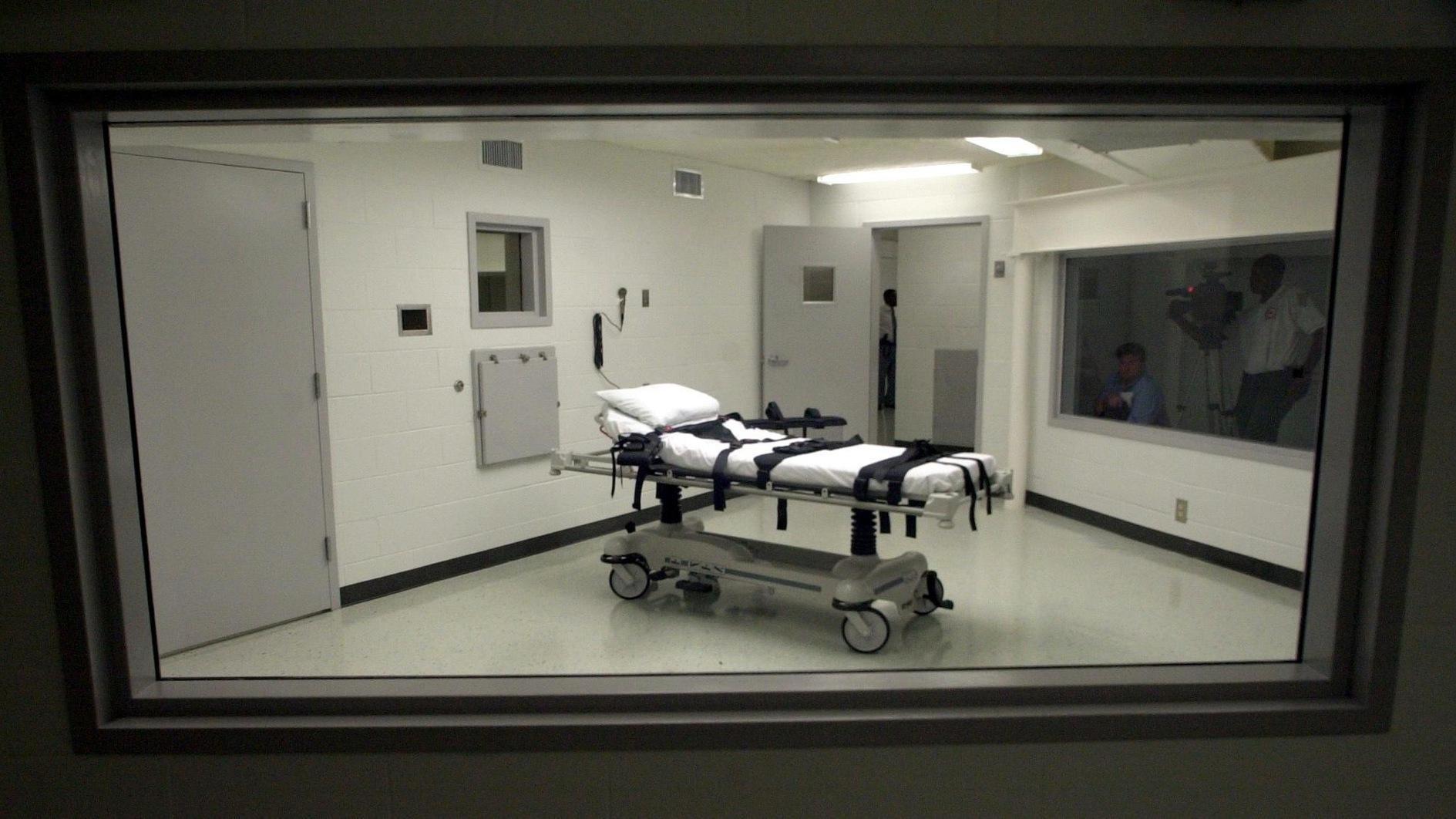
The southern U.S. state of Alabama on Thursday put to death a convicted murderer using nitrogen gas, the first time the controversial method decried by human rights advocates has been used in the country.
Kenneth Eugene Smith was pronounced dead at 8:25 pm (0225 GMT Friday), according to the state attorney general.
"Justice has been served. Tonight, Kenneth Smith was put to death for the heinous act he committed over 35 years ago," the statement by Attorney General Steve Marshall said.
Smith, 58, was on death row for more than three decades after being convicted of the 1988 murder-for-hire of a pastor's wife.
He was put to death at Holman Prison in Atmore, Alabama by nitrogen hypoxia, which involved pumping nitrogen gas into a facemask, causing him to suffocate.
According to witnesses, he "began writhing and thrashing for approximately two to four minutes, followed by around five minutes of heavy breathing," local media Al.com reported.
The curtain over the media witness room opened at 7:53 pm the publication said, with Smith pronounced dead less than 40 minutes later.
Robin Maher, executive director of the Death Penalty Information Center said previously that Alabama was "using an untested, unproven method of execution."
"It's never been used before to execute anyone in the United States, or anyone in the world as far as we know," Maher told AFP .
Smith was subjected to a botched execution attempt in November 2022, when prison officials were unable to set intravenous lines to administer a lethal injection.
In an interview with National Public Radio in December, Smith said he was "absolutely terrified" about his upcoming execution and still suffering "trauma" from the previous failed attempt.
"Everybody is telling me that I'm going to suffer," he said.
The last U.S. execution using gas was in 1999 when a convicted murderer was put to death using hydrogen cyanide gas.
There were 24 executions in the United States in 2023, all of them carried out by lethal injection.
Alabama is one of three U.S. states that have approved the use of nitrogen hypoxia as a method of execution, along with Oklahoma and Mississippi.
'Torture'
Ravina Shamdasani, a spokeswoman for the U.N. rights office in Geneva, urged Alabama last week to abandon the plan to execute Smith using what she called a "novel and untested" method.
Shamdasani said it could "amount to torture or other cruel, inhuman or degrading treatment or punishment, under international human rights law."
While nitrogen gas had never previously been used to execute humans in the United States, it is sometimes used to kill animals.
But Shamdasani pointed out that even the American Veterinary Medical Association recommends giving large animals a sedative when being euthanized in this manner.
Alabama's protocol for execution by nitrogen asphyxiation makes no provision for sedation.
The state of Alabama defended the method of execution, claiming it is "perhaps the most humane method of execution ever devised."
Smith and an accomplice, John Parker, were convicted of the 1988 murder of Elizabeth Sennett for which they were each paid $1,000.
Charles Sennett, who had arranged his wife's murder, killed himself a week after her death. Parker was executed by lethal injection in 2010.
Smith appealed to the U.S. Supreme Court for a stay of execution but the nation's highest court denied the request.
According to a recent Gallup Poll, 53 percent of Americans support the death penalty for someone convicted of murder, the lowest level since 1972.
Capital punishment has been abolished in 23 U.S. states, while the governors of six others — Arizona, California, Ohio, Oregon, Pennsylvania and Tennessee — have put a hold on its use.